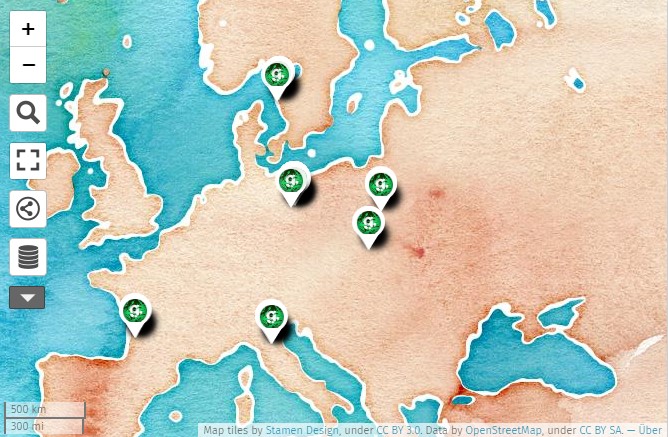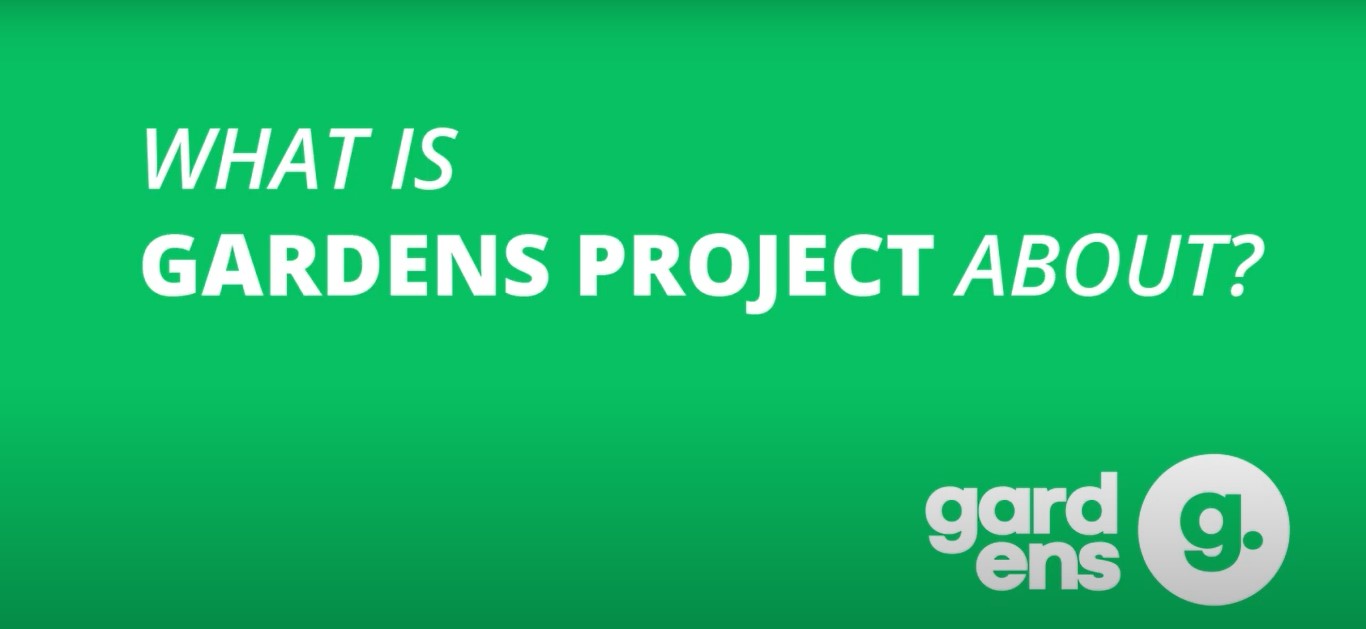GARDENS as inclusive Green Learning places
Urban gardening has the potential to turn the growing number of consumers into conscious producers by raising awareness of natural resource cycles, contributing to environmental conservation and climate change mitigation. A study conducted by Bendt et al. on the effects of public-access community gardens indicated that those gardens did not only contribute to learning about local ecological conditions, but also about urban politics and social entrepreneurship.
Urban gardening, and particularly community activities, can also encourage lifelong learning among adults, especially low-skilled unemployed, persons with disabilities, socially excluded or jobless individuals, who risk being marginalized by society.
According to the Lisbon Strategy, education and training are critical factors for increasing the economic growth, competitiveness, and social inclusion of Europe. Lifelong learning is a priority for the European Union, and together with mobility, it is one of the long-term strategic objectives of EU education and training policy, as it is considered a key aspect for enhancing employment and economic success while allowing individuals to fully participate in society.
The project will start with a needs assessment within each consortium member, identifying strength and weaknesses in their practices to implement inclusive and integrative green education in community gardens. Based on the needs, the partnership will develop indicators and create a self-assessment grid on the practices used by the partners on inclusion and integration.
Based on the resulting SWOT the partnership will seek and present smart practices, addressing specifically the weaknesses commonly identified by the partnership. At the same time there will be a common Input training, where the staff of the organisations will learn some of the most current practices and methods.
Based on the input and the collected practices, but as well the self-assessment, there will be an open EduLab, in which the participants will respond to challenges, given by the partnership, to create prototypes and action plans for methods, tools and campaigns, which can be actually used and implemented by the partnership.
The process, the practices and the assessment grid will be published in an eBook and can be the basis for a future training plan on target audience communication, not just for the partners themselves, but for any other interested organisation.
GARDENS results will be:
? Elaborating at least 12 smart practices on green education and implemented community garden methods
? Organising 2 Training, where the techniques and methods will be discussed and put into practice.
? Creating an interactive map visualising the smart practices
? A process to assess needs and practices and implement them in action plans
? Two learning activities, which will transfer and create skills towards facilitators of the participating organisations
GARDENS expects all participants to be more conscious about the role community gardens have for teaching and engagement of socially marginalised adult learners (migrants, people with disabilities, people with lower education, elderly) in an inclusive setting. We expect them to be ready to share their new knowledge, to teach and encourage others and to get involved.
In identifying new methods we expect the participants to become curious and to be motivated to enroll in lifelong learning. Lifelong learning in general strengthens the feeling that everybody can succeed and everybody is worthy and capable. It also helps the staff of the partner organisation to motivate the marginalised target audience to do so, since making learning fun with new tools and methods motivates and encourages involvement.
The project will stimulate an active participation of community gardens and similar initiatives in inclusive adult education. In this way many local initiatives might for the first time realise and be motivated to review, describe and formalise their educational offer, as it is in many cases understood rather as a side activity. The impact on local level will be magnified by the extensive local networks of all partners and on policy level by the participation of the city administration of Krakow. This will strengthen local community gardens, but as well marginalised groups by providing a more structured and improved educational offer, opening more gardens to those groups.
We will bring the results and achievements to the attention of European policy makers with a view to create recommendations on how to foster inclusion through green education in garden based settings. GARDENS open access interactive map will allow a wide diffusion of produced contents and formats at the European level as well as ensure a European-wide networking and coordination among stakeholders. The final eBook will help to make the collected practices visible and open for peer-review and adaptation across Europe.











